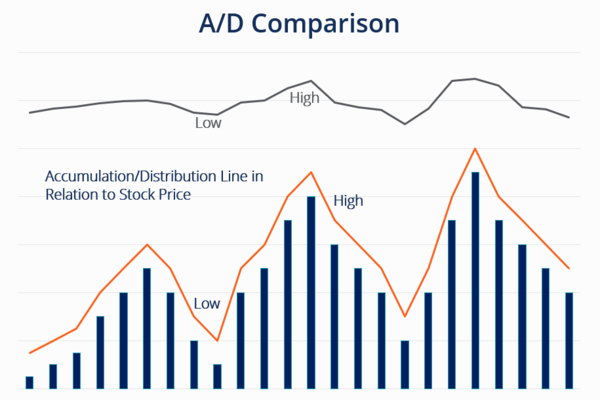Credit Suisse, an international investment bank, was acquired by its old
rival, Swiss Bank, for $3.2 billion. This news is shocking because Credit Suisse
is not a small bank that only operates in specific regions, like Silicon Valley
Bank. It is one of the thirty systemically important banks in the world, with
assets under management exceeding 1.5 trillion US dollars. What kind of monster
is this? The GDP of Switzerland alone is only 800 billion, equivalent to two
years of GDP. The final acquisition price was only 3.2 billion US dollars. What
concept is this? In February, the market value of Silicon Valley Bank reached 18
billion US dollars, equivalent to five times that of Credit Suisse. It's really
unbelievable, and even more unimaginable is that UBS reluctantly agreed to this
price after the Swiss government provided a series of giveaways.

However, this former giant unexpectedly collapsed due to an old gentleman
from the Saudi National Bank saying "action let". This can be said to be one of
the most popular memes in the financial industry, and anyone who has slightly
followed financial news in recent years should have heard of it. Regarding the
negative news about Credit Suisse, it seems that every year someone says it's
about to end. But it has always been strong; why is it not working now? Today,
let's analyze this deep mystery.
Firstly, let's take a look at the positions of these three parties in this
game.
From the perspective of Credit Suisse, considering its history and complex
relationship with Swiss banks, Credit Suisse naturally hopes to avoid being
sold, especially not to sell it to its old competitors to avoid losing face.
Therefore, they hope for government assistance, but the government has clearly
stated that this is not a negotiation but a notice, so they can only expect to
sell at a higher price, at least based on their current market value, with a
slight discount, which will be more reasonable.
For Swiss banks, acquiring competitors is definitely an attractive
opportunity, but they hope that the lower the transaction price, the better. In
addition, time is also a key issue, and the government has given UBS a weekend
to complete this transaction. Credit Suisse is currently heavily indebted,
struggling, and an extremely complex institution. Therefore, purchasing such a
complex entity in such a short period of time is a huge challenge for UBS.
Therefore, they proposed a price of 10 billion Swiss francs (approximately $10
billion), which is equivalent to a portion of their market value. This proposal
has humiliated Credit Suisse, especially after its stock price plummeted for a
month, dropping to one eighth of its peak. This price is actually equivalent to
Lucky Coffee, and the company's stock price remains only one eighth of its peak
after consecutive sharp declines.
For the government, their stance will become a key factor. The government
hopes to avoid the collapse of two banks, as it will have a serious negative
impact on Switzerland. But the government still needs to remain neutral in this
transaction and cannot favor either side. Therefore, they must find a solution
that can be accepted by the shareholders of both banks.
Under the mediation of the government, the Swiss government proposed a
solution. They took an unusual but clever approach by directly canceling Credit
Suisse's $17 billion worth of bonds. This means that the holders of these bonds
will no longer need to repay these debts. However, this may be a huge blow for
investors, as most of the buyers of Credit Suisse bonds are professional
financial institutions with higher risk tolerance, but they will still be
affected. In addition, the government has provided liquidity protection of 10
billion Swiss francs to UBS and guarantees of 9 billion Swiss francs for some of
Credit Suisse's non-performing assets. These government measures ultimately led
UBS to agree to the acquisition and compromise slightly on the transaction
price.
This $32 billion transaction amount is equivalent to a quarter of Credit
Suisse's stock price before the crash, much lower than a tenth of its stock
price a year ago and even less than a thirtieth of its stock price a decade ago.
This is far from the peak of Credit Suisse's stock price in 2007. Government
intervention makes debt defaults possible, which is usually rare as debt usually
takes precedence over equity. However, the government's decision actually
lowered the priority of the debt, causing dissatisfaction among debt holders and
leading them to jointly sue the government. In addition, shareholders may also
be dissatisfied with the government's measures as their rights have been
harmed.
A bank's assets under management also include deposits. For example, at the
end of 2022, Credit Suisse's assets under management were 1.3 trillion Swiss
francs, while its total assets were 530 billion and deposits were only 245
billion. Because some of its assets are managed by customers in a certain way,
the money is placed in the bank and managed by the bank, but it does not belong
to the bank's assets.
After UBS bought Credit Suisse, what does this mean? It's not that Credit
Suisse disappeared forever; it's just that UBS has now become a shareholder of
Credit Suisse, so the original shareholder of Credit Suisse is now holding a
portion of its shares. Although Credit Suisse will not disappear immediately,
just as an agreement was reached, Credit Suisse announced that it would lay off
9000 employees. It is estimated that after UBS finds out, there may be more
layoffs. So UBS is like spending a lot of money to buy a group like Credit
Suisse, so it must pick some valuable parts from the middle, such as wealth
management or clients. Those things that don't make money in the investment
banking market are probably just thrown away; after all, buying doesn't cost
much money.
The Swiss government will definitely do everything possible to protect UBS,
as it is truly a big and unstoppable bank for Switzerland now.
Analyze why Credit Suisse went bankrupt—is it because of liquidity management
issues like those at Silicon Valley Bank? Actually, it's not the case. Although
companies like Ruixing experienced a significant drop in stock prices after the
financial crisis, with a drop of up to 99%, they have achieved quite standard
levels in various risk indicators such as liquidity and capital adequacy. We
cannot say that it performs well, but at least it meets industry standards.
It should be understood that after the financial crisis, Europe and America
have adopted very strict regulatory measures for the risk management of large
international investment banks. Even in this situation, Ruixing's business
situation remains relatively stable. For example, the Silicon Valley bank
mentioned earlier suffered losses due to its failure to effectively hedge
interest rate risk. However, as an internationally systemically important bank,
Credit Suisse is subject to stricter regulatory requirements and must
effectively hedge this risk. In addition, the scale of assets managed by Credit
Suisse has been increasing, and funds have not significantly decreased, at least
until 2020.
However, why did Credit Suisse end up in such a bad situation? In fact, the
fundamental reason is that the market has lost confidence in it, and repeated
scandals have slowly evaporated the market's trust in this bank. I personally
believe that for banks, the most important thing is the market's trust in
them.
When customers deposit their funds in the bank or engage in transactions, the
most desired thing is to feel secure. They do not need banks to carry out
various high-risk operations like hedge funds, nor do they need high returns or
innovative operations. Professionalism and stability are sufficient. However,
why are the scandals at Credit Suisse one after another? From helping clients
evade taxes to tracking transactions with former employees, it seems that every
incident seems unrelated. But I think this may be because internal management
issues have accumulated for many years, gradually eroding the overall culture of
the company, including risk management.
Risk management is clearly very weak in this bank, which not only includes
market risks required by regulation but also operational risks, moral risks,
credit risks, and so on.
When one or two scandals break out, customers may not immediately withdraw
their funds, but the bank's credit will decline, making it more difficult to
attract talent and raise funds, and the cost of financing will also increase. In
addition, the provision of various derivatives and pricing by banks in the
market will also be affected. This makes it difficult to achieve profitability,
and employees tend to pursue it even more, forming a vicious cycle.
Although Credit Suisse manages trillions of dollars in assets, it has hardly
made a profit since 2011. Therefore, in summary, the fundamental reason for
Credit Suisse's ultimate bankruptcy lies in its long-term neglect of risk
management in pursuit of profits. The repeated scandals have caused the market
to lose confidence in it, and this process has been ongoing for over a
decade.
The financial market is complex, and once market confidence bursts, it will
trigger a chain reaction. So caution should be maintained, especially among
investors. Investment is a complex task because the market is constantly
changing. But we can learn some lessons from history, such as focusing on
company risk management, not only for short-term profits but also for the long
term. In addition, risk diversification is also important. Do not concentrate
all investments in one place in order to better cope with unknown risks.
Disclaimer: This material is for general information purposes only and is not intended as (and should not be considered to be) financial, investment or other advice on which reliance should be placed. No opinion given in the material constitutes a recommendation by EBC or the author that any particular investment, security, transaction or investment strategy is suitable for any specific person.







